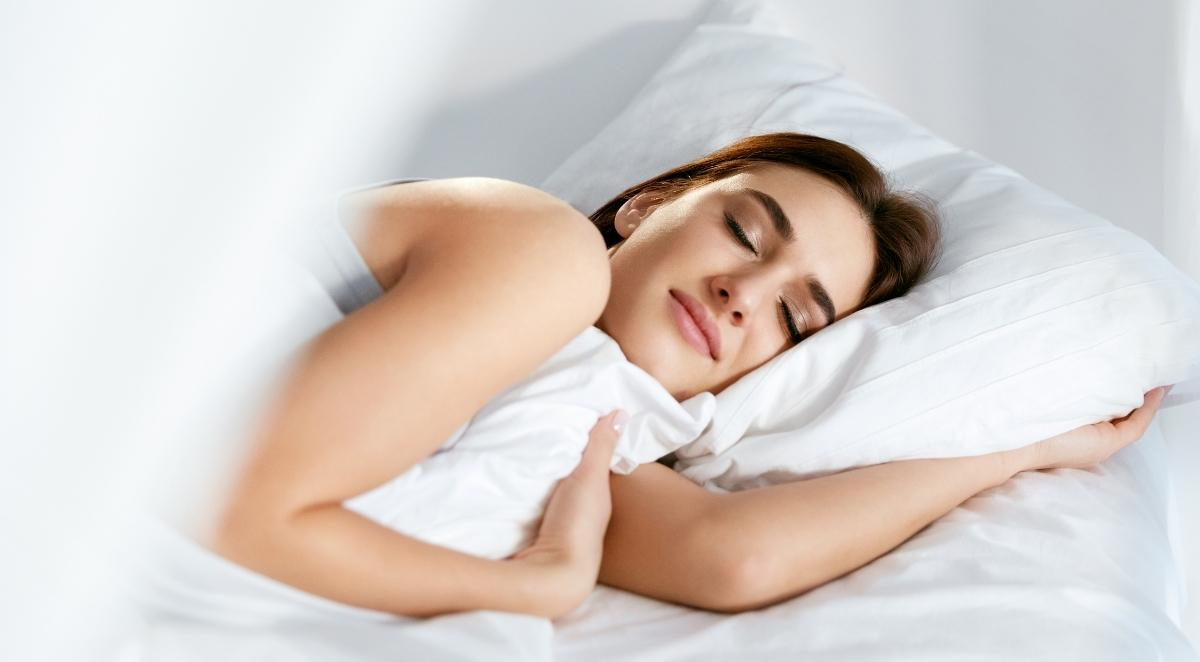Sleep Hygiene: Your Ticket to Better Sleep
Hygiene, in general, refers to practices conducted to maintain health and prevent disease and is most often ascribed to actions that maintain cleanliness. Sleep hygiene follows the same thought process but is specific to activities that promote good sleep.
It encompasses only the behavioral and environmental interventions one can take to get a good sleep. Practicing sleep hygiene doesn’t use medications (prescription or over-the-counter) or other medical devices. Though if you do find that you are practicing the best sleep hygiene, you can and still have poor sleep, you may consider seeking professional medical help.
Why Good Sleep Hygiene Matters
As we have mentioned here and in other blogs, sleep has a significant impact on physical and mental health. Regular good sleep improves not only daily productivity, mood, and quality of life, but it can also lower the risk of many chronic conditions.
Day-to-day bad sleep hygiene puts you at greater risk of grogginess during the day and impaired memory. Both symptoms increase the likelihood of accidents when operating tools or machines. This danger includes car accidents, of which drowsy driving accounts for thousands of injuries and fatalities each year.
Suffer from poor sleep long enough and your risk of developing or worsening other health conditions like high blood pressure, diabetes, stroke, obesity, and depression. Not getting enough sleep can also affect the immune system, bringing down your ability to fight infections.
How to Implement Good Sleep Hygiene
Good sleep hygiene means having both good habits and a sleep environment that promotes consistent and uninterrupted sleep. Here are our top ways to implement sleep hygiene into your daily life.
1. Be Consistent

Our bodies naturally work on an internal clock that you’ll often hear referred to as the circadian rhythm. It is a cycle of physical, mental, and behavioral changes that recur every 24 hours a day. Those changes are a predictable response to our environment, and good sleep is an integral part of this cycle. One way to help maintain the balance of your own internal clock is to be consistent.
Set good habits to follow your body's natural clock consistently with the following:
-
- Go to sleep and get up at the same time every day, even on weekends when it can be tempting to sleep in.
- In the evening, don’t ignore feelings of tiredness. If your body is telling you it needs sleep, go to bed. The opposite is also true. If you aren’t tired at night, don’t lie in bed for more than 30min without falling asleep.
- Have a routine at night that you can follow. Repeating the same steps in the 30 minutes prior to going to bed, like brushing your teeth, meditating, or even just putting on pajamas, can help reinforce in your mind that it is time to sleep.
- When you wake up, make sure to get some exposure to the sun, if possible.
- If you need to alter your sleep schedule, do so in small increments of no more than an hour or two.
- Poor night's sleep happens to everyone; if you are feeling tired during the day, keep naps short and in the early afternoon to keep from impacting the coming night's sleep. Over napping can, unfortunately, throw your entire schedule off by preventing good sleep overnight.
2. Create a Calming Environment
If a consistent schedule is the most essential part of sleep hygiene, having a good sleep environment is a very close second. Dedicate your bedroom to getting sleep.
You can ensure your bedroom is a sleep sanctuary by implementing the following:
- Stay away from bright lights that can hinder your body's production of melatonin. This goes for bulbs in the room as well as outside light sources. If you live in a city, you may want to consider blinds or black-out curtains to reduce light pollution.
- Keep electronics out of the room. A crucial part of unwinding for bed and sound sleep is disconnecting from the work and stimulus of the day. If possible, keep work and entertainment areas like TVs and computer desks separated from where you sleep. And leave your phone on the bedside table as an alarm only.
- If you wake up feeling both sore and tired, you should especially pay attention to your mattress, bedding, and pillows. Everyone has different preferences; whatever your choice is, your bed should be comfortable and inviting.
- Check the thermostat and find your perfect sleeping temperature. Research has shown that cooler temperatures (down to around 65 degrees) are optimal for most individuals to sleep in.
- If you are a light sleeper who wakes up at any noise or suffers from tinnitus, consider utilizing a fan or white noise machine to help level out your surroundings.
3. Good Habits for the Daytime
Evening and nighttime habits aren’t the only ones that impact how well you sleep. Make sure you aren’t sabotaging your best efforts at night by what you do during the day.
Promote good sleep with the following daytime habits:
- Exercising daily will not only help keep you physically fit, but it also makes it easier to sleep at night. Getting active earlier in the day can help you wake up and be alert; just try to avoid heavy exercise an hour or two before you plan to sleep, as it can leave you too awake to fall asleep quickly.
- Get daily exposure to sunlight. Whether it is going for a short walk, enjoying a coffee or tea on the porch, or just opening the curtains, natural light helps balance your circadian rhythm.
- Avoid caffeinated beverages in the afternoon and evening. It’s a common stimulant that can keep you awake even hours after drinking. We all know drinking coffee can disrupt our ability to sleep, but make sure to cut other caffeine sources well before the evening. Tea can often have a calming effect, but you may be setting yourself up for trouble if it isn't decaf.
- Make sure your main dinner for the day is early enough for you to digest before lying down for bed. You can eat a light snack closer to bedtime, but large meals can risk indigestion and heartburn keeping you awake.
4. Other Ways to Improve Sleep

Most of the tips discussed above are easily started and maintained without outside help. But there are a few habits or conditions that may take a helping hand or more in-depth medical intervention.
- Smoking is a health hazard for many reasons. If you are a smoker and have trouble with poor sleep, research has shown nicotine is correlated with the prevalence of many sleeping problems. There is never a better time than now to start a smoking cessation program.
- If you or your partner snore or generally breathe through your mouth while sleeping, that may indicate you are suffering from nasal congestion that prevents you from nasal breathing. It could also indicate that you have a tongue thrust, which could be responsible for allowing your mouth to be open when sleeping. We typically don’t pay much mind to what our tongue is doing, but it can lead to considerable problems when it isn’t functioning as it should. And that includes messing with our sleep.
- Certain medical conditions can leave you exhausted no matter how good a night's rest you get. Diseases like anemia, diabetes, and an underactive thyroid can only be detected and treated with the help of a medical professional. If you have otherwise practiced good sleep hygiene like we recommended in part one of this blog but are still waking up tired, it may be time to make an appointment with your doctor.
I know we have thrown a lot of steps toward implementing sleep hygiene at you all at once, but you likely already do many of them if you stop and think about it. And everyone might not be in a position to incorporate all of them, especially if you have odd work hours or young kids. Tackle what you can and build up to the level of sleep hygiene that leaves you feeling refreshed every morning.
IJustWantTo® Correct My Tongue Thrust
If you think you or a loved one may be experiencing poor sleep because of a tongue thrust, don’t worry. In most cases, it can be remedied with tongue exercises that will help you form a more natural tongue and swallowing motion.
Our program is the only one of its kind available. It’s a seven-week exercise program that’s been shown to correct a tongue thrust and repair an improper tongue position. This is performed by performing particular exercises to strengthen the tongue muscles and make the new tongue placement a habit.
When this occurs, nasal breathing should take the role of mouth breathing during sleeping, which will help to prevent snoring and other mouth-breathing symptoms.
Your path to improving sleep hygiene may involve correcting a tongue thrust. If you want to correct your tongue thrust, contact IJustWantTo Correct My Tongue Thrust or visit our online store. Start breathing through your nose, find relief from snoring and fatigue, and wake up without having a dry mouth and sore throat.



